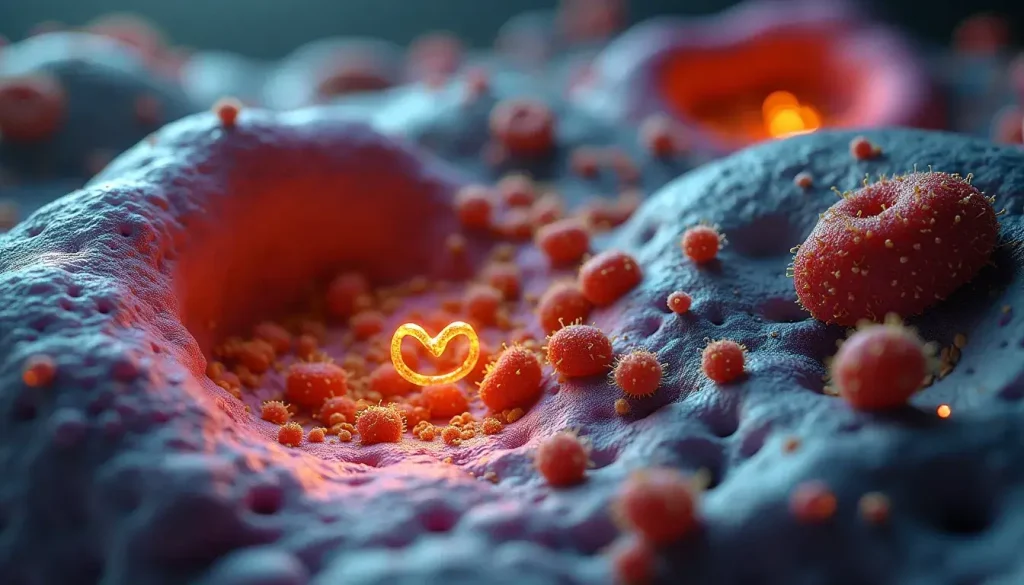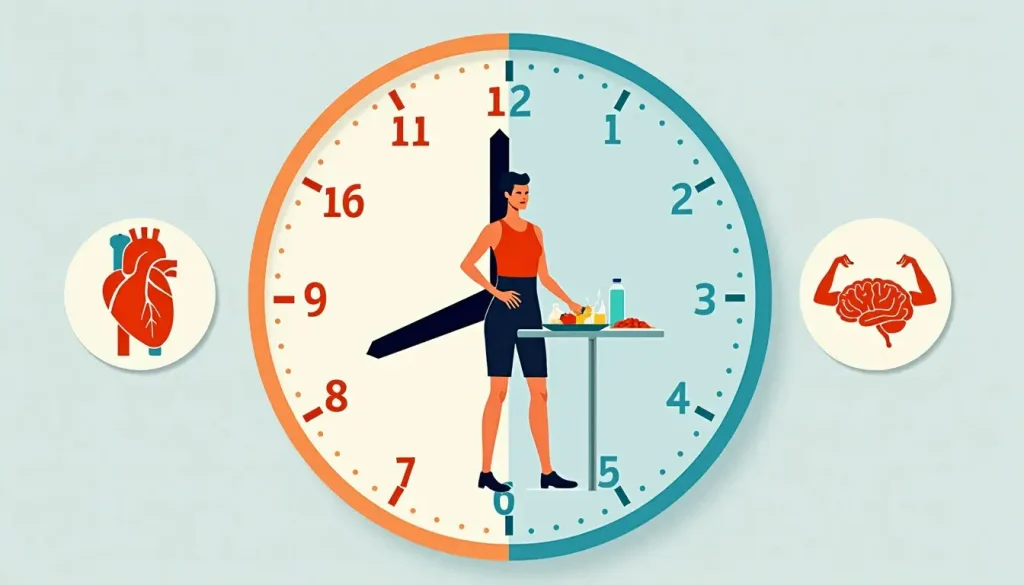intermittent fasting. Notably, this is not just another trendy diet; it is a lifestyle change, and it is backed by science and real success stories.
What Is Intermittent Fasting?
Intermittent fasting isn’t about what you eat, but rather when you eat. It involves alternating between periods of eating and fasting, allowing your body to utilize its natural healing and recovery abilities. As Dr. Sarah Johnson, a renowned nutritionist and fasting expert, explains, “Intermittent fasting is not a diet; it’s a pattern of eating. It’s a way to plan your meals for the best results.”
The Methods of Intermittent Fasting
There are several popular methods of intermittent fasting, each with its unique approach to structuring fasting and eating periods:
- 16/8 Method: This method involves fasting for 16 hours each day and eating during an 8-hour window. For many, this is the most approachable way to start, as it simply requires skipping breakfast and eating between 12 pm and 8 pm.
- 5:2 Diet: In this method, individuals eat normally for five days a week and drastically reduce calorie intake (about 500-600 calories) for two non-consecutive days.
- Alternate-Day Fasting: This more intense method alternates days of normal eating with days of either no food or a very limited intake (around 500 calories). While effective, this requires a greater degree of discipline.
- OMAD (One Meal a Day): As the name suggests, this method involves eating just one meal within a 24-hour period. It is one of the more extreme forms of intermittent fasting but can be effective for those seeking significant weight loss.
Ultimately, the variety of methods allows people to find a plan that works for their individual lifestyle and goals, whether they’re looking to lose weight, improve health, or enhance mental clarity.rks for their individual lifestyle and goals, whether they’re looking to lose weight, improve health, or enhance mental clarity.
The Science Behind the Hype

Recent studies have shown that intermittent fasting can lead to impressive health benefits:
- Weight Loss: A 2019 study in the New England Journal of Medicine found that intermittent fasting can help people lose weight and improve metabolic health. By reducing the eating window, people naturally consume fewer calories, leading to weight loss. The body shifts from using glucose for energy to burning fat stores, a process called ketosis. This metabolic switch is what makes intermittent fasting an effective weight-loss strategy.
- Brain Health: Fasting can also benefit the brain. Research suggests that fasting may enhance brain function and potentially protect against neurodegenerative diseases like Alzheimer’s. Fasting triggers the production of brain-derived neurotrophic factor (BDNF), a protein that supports brain health. Increased BDNF levels have been linked to improved memory and learning abilities, and fasting may help maintain optimal cognitive function as you age.
- Longevity: Animal studies have indicated that intermittent fasting might extend lifespan by reducing the risk of age-related diseases. By improving metabolic health and reducing inflammation, fasting can contribute to a longer, healthier life. While human studies on longevity are still ongoing, the evidence from animal models is promising.
- Improved Insulin Sensitivity: One of the major benefits of intermittent fasting is its ability to improve insulin sensitivity. By reducing the frequency of meals, the body becomes more efficient at managing blood sugar levels, reducing the risk of type 2 diabetes. In fact, some studies have shown that intermittent fasting can lower insulin levels by 20-30%, which has a profound effect on metabolic health.
- Cellular Repair and Autophagy: During fasting, cells initiate a process called autophagy, which is essentially a cleaning-up mechanism where damaged cells and proteins are removed. This is crucial for maintaining cellular health and reducing the risk of chronic diseases like cancer.
Historical Context of Fasting

Fasting is not a new concept. It has been practiced for centuries across various cultures and religions. From the spiritual fasts of Ramadan in Islam to the Lenten fasts in Christianity, fasting has been a part of human history. These practices were often rooted in spiritual beliefs but coincidentally aligned with modern scientific findings on the health benefits of fasting.
In ancient Greece, Hippocrates, often called the father of modern medicine, recommended fasting as a treatment for various ailments. The benefits of fasting have been recognized by traditional medicine systems for millennia, long before modern science began to explore its physiological impacts.
Real People, Real Results: A Case Study
Meet John, a 45-year-old software engineer who struggled with weight and energy levels for years. After adopting a 16/8 intermittent fasting schedule (16 hours of fasting, 8 hours of eating), John experienced remarkable changes:
- Lost 30 pounds in 6 months
- Improved energy levels and mental clarity
- Normalized blood pressure and cholesterol levels
“I never thought changing when I eat could have such a profound impact on my health,” John shares. “It has changed my life.” His experience highlights the transformative power of intermittent fasting when combined with healthy eating habits and consistency.
Expert Insights: Maximizing the Benefits of Intermittent Fasting
We spoke with Dr. Emily Chen, a leading researcher in metabolic health, to get her top tips for success:
- Start Slow: “Begin with a 12-hour fast overnight and gradually increase the fasting window,” Dr. Chen advises. This approach helps your body adjust to the new eating pattern without causing undue stress.
- Stay Hydrated: “Drink plenty of water during fasting periods to support your body’s processes.” Hydration is crucial, as it helps maintain energy levels and supports cellular functions. You can also drink herbal teas and black coffee during fasting hours.
- Focus on Nutrient-Dense Foods: “When you do eat, choose whole, unprocessed foods to maximize nutritional intake.” This ensures that your body receives essential nutrients even with a reduced eating window. Avoid processed foods, refined sugars, and unhealthy fats.
- Listen to Your Body: “If you feel unwell, it’s okay to break your fast. Intermittent fasting should make you feel better, not worse.” It’s important to prioritize your well-being over strict adherence to fasting schedules.
Potential Challenges and How to Overcome Them

While intermittent fasting offers numerous benefits, it also comes with challenges:
- Hunger Pangs: Initially, you may experience hunger during fasting periods. Over time, your body will adapt, and these feelings will diminish. Drinking water or herbal tea can help curb hunger. Gradually increasing your fasting window can also ease the transition.
- Social Situations: Fasting can be challenging during social events centered around food. Planning your fasting schedule around these events or choosing smaller portions can help. Alternatively, you can shift your eating window to accommodate special occasions.
- Energy Levels: Some people may experience low energy levels when starting intermittent fasting. Ensuring adequate nutrient intake and gradually increasing fasting periods can mitigate this issue. Including nutrient-dense, slow-digesting foods in your meals will help maintain energy levels.
- Fasting and Exercise: For those who exercise regularly, fasting might affect performance, particularly during high-intensity workouts. It’s important to listen to your body and experiment with workout timing. Some people find success in exercising during their eating window, while others prefer to train in a fasted state.
Is Intermittent Fasting Right for You?
While the benefits are impressive, it’s important to remember that intermittent fasting isn’t for everyone. Pregnant women, people with eating disorders, and those with certain health problems should consult a doctor before starting any fasting plan. It’s crucial to tailor your approach to your individual health needs and lifestyle.
For individuals with a history of disordered eating, fasting may trigger unhealthy behaviors, so it’s essential to proceed with caution. Similarly, if you have underlying medical conditions such as diabetes or heart disease, it’s best to work with a healthcare provider to ensure that fasting is safe and beneficial for you.
Practical Tips for Getting Started
If you’re ready to explore the world of intermittent fasting, here are some practical tips to help you get started:
- Choose a Fasting Schedule: Popular methods include the 16/8 method, the 5:2 diet, and alternate-day fasting. Choose a schedule that fits your lifestyle. Start with something manageable, like the 12-hour fast, and build up as your body adjusts.
- Plan Your Meals: Planning meals ahead of time can help you stick to your fasting schedule and ensure that you consume balanced, nutritious meals. Focus on whole foods that are high in fiber, protein, and healthy fats to keep you satiated during fasting hours.
- Track Your Progress: Keeping a journal of your fasting schedule, meals, and how you feel can help you track your progress and make necessary adjustments. Use apps like Zero or MyFitnessPal to monitor your fasting windows and eating habits.
- Don’t Forget Self-Care: Fasting is not just about restricting food. It’s essential to maintain self-care practices such as getting adequate sleep, managing stress, and staying active.
Get Your Free Intermittent Fasting Starter Kit
Ready to embark on your intermittent fasting journey? Start today with our free guide, which includes meal plans, tips, and resources to help you succeed. Click Here
Want to know how weight loss drugs help Anti Aging?
Conclusion
Remember, the key to success with any health change is consistency and patience. Intermittent fasting may unlock a new level of health and energy that you didn’t think was possible. By choosing the right fasting method, eating nutrient-dense foods, and listening to your body, you can enjoy the many benefits of this ancient
